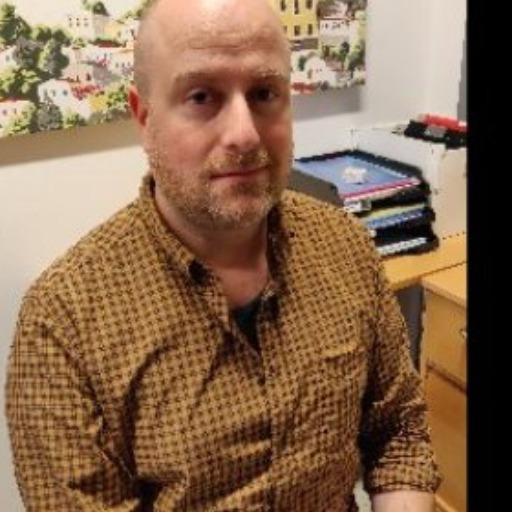We use cookies on this website. Cookies help us deliver the best experience on our website. Read about cookies.
-
- Education
- Education
- Programmes and courses
- Applications and admissions
- Tuition fees
- Scholarships
- Exchange studies at Malmö University
- Study Guidance
-
- After admission
- After admission
- Moving to Malmö
- Pre-orientation
- Arrival guide
-
- About studies at Malmö University
- About studies at Malmö University
- Why choose Malmö University
- Understanding university studies
- Connect with our students
On the page -
- Research
- Research
-
- Doctoral studies
- Doctoral studies
- Doctoral courses
-
- Doctoral schools
- Doctoral schools
- Adaptation of urban space through sustainable regeneration
- ComBine
- Culturally Empowering Education through Language and Literature
- Education, Learning and Globalisation
- Finding ways in a time of great future challenges (FinnFram)
- Swedish National Graduate School in Science and Technology Education Research
- Learning in Multicultural Societal Contexts
- Pedagogy and Vocational Skills
- Relevancing Mathematics and Science Education (RelMaS)
- Sustainable Movement Education
- The National Research School for Professionals in Social Services
- Research subjects
-
- Research centres
- Research centres
- Biofilms Research Centre for Biointerfaces
- Citizen Health
- Imagining and Co-Creating Futures
- Institute for Urban Research
- Malmö Institute for Migration Studies
- Literacy and Inclusive Teaching
- Centre for Work Life Studies
- Sustainable Digitalisation Research Centre
- Centre for Sexology and Sexuality Studies
-
- Research publications
- Research publications
- Search for research publications in Diva
- Malmö University Press
- Research events
- Participate in a research study
- Coffee Break Quiz
On the page -
- Collaboration and Innovation
- Collaboration and Innovation
- Innovation
- Collaboration with students
-
- Collaborate with researchers
- Collaborate with researchers
- Labs and facilities
- Culture collaboration
- Support Malmö University
- Alumni & Friends
On the page -
- About us
- About us
-
- Faculties and departments
- Faculties and departments
-
- Faculty of Culture and Society
- Faculty of Culture and Society
- Department of Global Political Studies
- School of Arts and Communication
- Department of Urban Studies
-
- Faculty of Education and Society
- Faculty of Education and Society
- Department of Childhood, Education and Society
- Department of Sports Sciences
- Department of Culture, Languages and Media
- Department of Natural Science, Mathematics and Society
- Department of Society, Culture and Identity
- Department of School Development and Leadership
-
- Faculty of Technology and Society
- Faculty of Technology and Society
- Department of Computer Science and Media Technology
- Department of Materials Science and Applied Mathematics
-
- Faculty of Odontology
- Faculty of Odontology
- Master's programmes in Dental Science
- University Dental Clinic
-
- Find and contact Malmö University
- Find and contact Malmö University
- Visit Malmö University
-
- News and press
- News and press
- Graphic manual
- Map of the buildings (Google Maps)
- Merchandise
- Supplier information and invoice management
- Whistleblowing
- Management and decision-making paths
-
- Malmö University's strategy 2030
- Malmö University's strategy 2030
- Global engagement
- Sustainability
- Widened recruitment and participation
- Quality assurance work at the University
-
- Malmö Academic Choir and Orchestra
- Malmö Academic Choir and Orchestra
- Student work – video pieces
-
- Annual Academic Celebration
- Annual Academic Celebration
- Academic traditions
- Meet our new professors
- Meet our new doctors
- Honorary doctors
- The University in a troubled world
On the page

Presentation
Johan Fhager was admitted in 2018 as a PhD-student in the research subject of care science. The research focus of the thesis is to investigate how people affected by patchy hair loss, alopecia areata, feel and how they are affected by the condition. Hypotheses exist, but it is not known for sure what causes and maintains the disease. In the research field, this is a so far insufficiently investigated hair disease. The main intention of the research project is to study how psychological, social and somatic factors interact in the development and maintenance of the disease alopecia areata. The intention is also to draw attention to and highlight the importance of caring interventions for these individuals. Johan Fhager is also clinically active as a licensed psychotherapist (PDT) and is a trained social worker with a master's degree in social work. Johan has previously studied two psychosocially vulnerable groups. One group was transsexual individuals who openly in society lived as their perceived gender and the other group consisted of men who lived openly in same-sex love relationships.
Publications
-
2024 | Article, review/survey
The Core Elements of Psychiatric and Mental Health Nursing: Time, Honest Engagement, Therapeutic Relations, Professional Nursing and Lifetime-Perspective
Anne-Marie Wangel, Karin Persson, Sara Duerlund, Johan Fhager, Emma Mårdhed, Lotta Sjögran, Karin Sjöström, Andreas Glantz, Karin Örmon, Charlotta Sunnqvist
-
2023 | Article in journal
The hairdex quality of life instrument: a translation and psychometric validation in patients with alopecia areata
Johan Fhager, Åke Svensson, Karin Örmon, Tobias W. Fischer, Karin Sjöström
